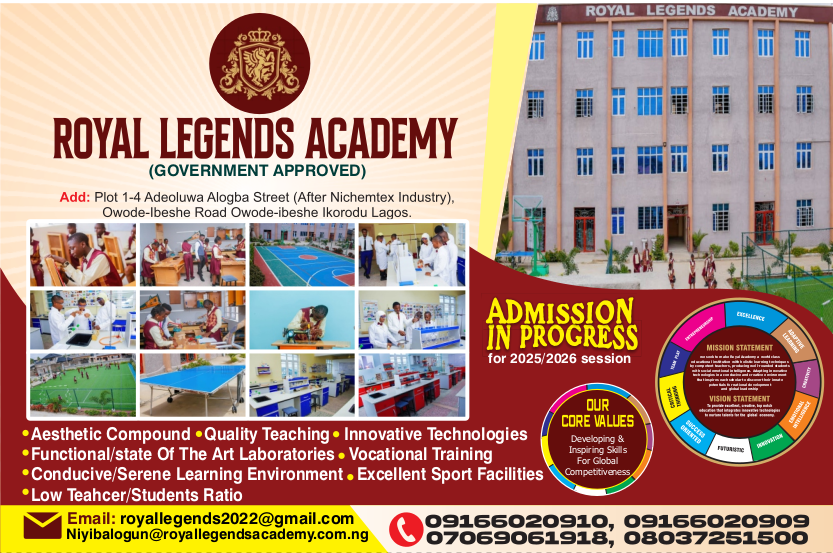Do you ever feel like no matter how much you study, the information just won’t stick? Or think 🤔 reading for examination takes so much time but little memories to show for it?
You’re not alone! Many secondary school students struggle with memorising facts, formulas, and concepts—especially when exams loom overhead.
The good news is that Memorisation isn’t about endless repetition—it’s about working smarter, not harder, but with the right techniques that boost memory, retain information better and longer, to ace your scores with enormous confidence.
At Royal Legends Academy, we have compiled some of the most effective memorisation techniques every secondary student must master to improve their scores and reach for the sky.
Foremost on the effective strategies is the
1. Power of Visualisation (Mind Palace Technique):
Have you ever heard of Sherlock Holmes "mind palace"?
This ancient technique, also called the Method of Loci, turns your memory into a mental map to fantastically retain information for you.
Let's take straight dive into how it works:
Step one - Create a vivid imagination of a familiar place (your house, school, or even a favourite game world).
Then Associate key facts about the topics you are reading and attach them to those specific locations in your house (e.g., a math formula on the couch, a historical date on the fridge).
Next step is to Walk your mind through those spaces in to enable you recall the information during the exam.
Why it works: Your brain remembers images and spaces better than plain text! So give it a try this weekend and thank us later .
2.Mnemonics: Memory Shortcuts such as
Mnemonics are fun filled memorisation techniques that use creative phrases or acronyms to help you remember lists or sequences of information that are very important.
Some popular examples:
- "Never Eat Soggy Waffles"→ Compass directions (North, East, South, West).
- 'My Very Educated Mother Just Served Us Noodles → Planets in order (Mercury, Venus, Earth, Mars, Jupiter, Saturn, Uranus, Neptune).
Feel free to Create your own silly funny mnemonics—the weirder, the better your brain will remember the topics and fetch them at click of your fingers 🤌.
Another engaging memory technique is the:
3.Spaced Repetition: it is a technique that helps you Focus on Studying Smarter Over much Time spent on Cramming which could be dicey because it keeps information on your short-memory, and you easily lose if there is a delay or changes on your papers.
Spaced repetition on the other helps to ensure your long-term memory retention.
How you can do use it
- Day 1: Learn the material.
- Day 3: Review them
- Day 7: Review again.
- Day 14: Final check.
This method strengthens memory by reinforcing knowledge, so you don't forget them before and during examination.

4.Teach What You Learn (The Feynman Technique)-
One of the best ways to memorise something is to teach it to someone else or even selected objects in your house.
The Feynman Technique works like this:
1. Study a concept.
2. Explain it in simple terms (as if teaching a 5-year-old).
3. Identify the gaps in your understanding, teaching and revisit them to put in the plugins that you missed.
Know that If you can explain it clearly, you truly know it!
5. Chunking: Break Information into Smaller Pieces: are you trying hard to memorise a formulas or long string of numbers or a complex definition? Why not use the Chunking system which helps you by grouping the information into smaller bits. Example is:
Phone numbers system 555-867-5309 instead of clustering the numbers as 5558675309.
So don’t tally, use the Smaller chunks = easier recall system and you will be amazed at how much information you would be able to retain.

6. Active Recall: is another time tested memorization method. The Active Recall helps you Test Yourself Before You Forget it. Moreover, Instead of passively rereading notes, actively quiz yourself to keep the information intact in your memory.
What you must do:
– Use flashcards.
– Cover your notes and write down what you remember.
– Solve practice problems without checking answers first.
This inspires your brain to retrieve information faster, making it stick better.
7. Use Multisensory Learning techniques – to engage and boost your memory by doing the following:
– Listening to pre-recorded notes while walking on the road or performing house chores. This works especially for auditory learnersDrawing sketches or diagrams or maps of the concept in your mind. This works especially for visual learners.
– Speak aloud while studying to reinforce especially if you are an auditory learner
Know that the more senses involved in your studying for examination, the stronger the memory would reward you!
The Final Tip:
8. Sleep & Healthy Habits Matters very much. Know that your brain consolidates memories during sleep. So don’t sacrifice rest for late-night cramming.
Most importantly,
* Stay hydrated.
* Eat brain-boost foods (nuts, fish, berries).
*Take short breaks- (try the Pomodoro Technique: 25 mins study, 5 mins break).

Conclusively, good memorisation techniques is not boring or frustrating. It is a conscious participate efforts using all sensory and creative efforts to retain and retrieve vital information for examination.
We hope that by using these science-backed techniques, you’ll spend less time studying and more time remembering.
As we wish you success in your examination here at Royal Legends Academy, please 🙏 feel free to tell us which one works best for you 😉



Leave a Reply